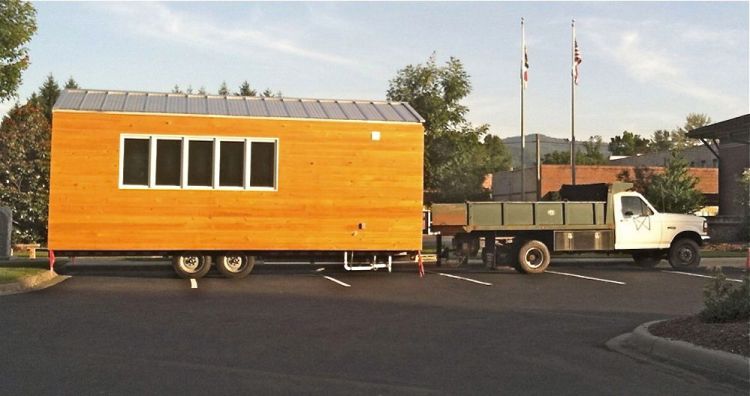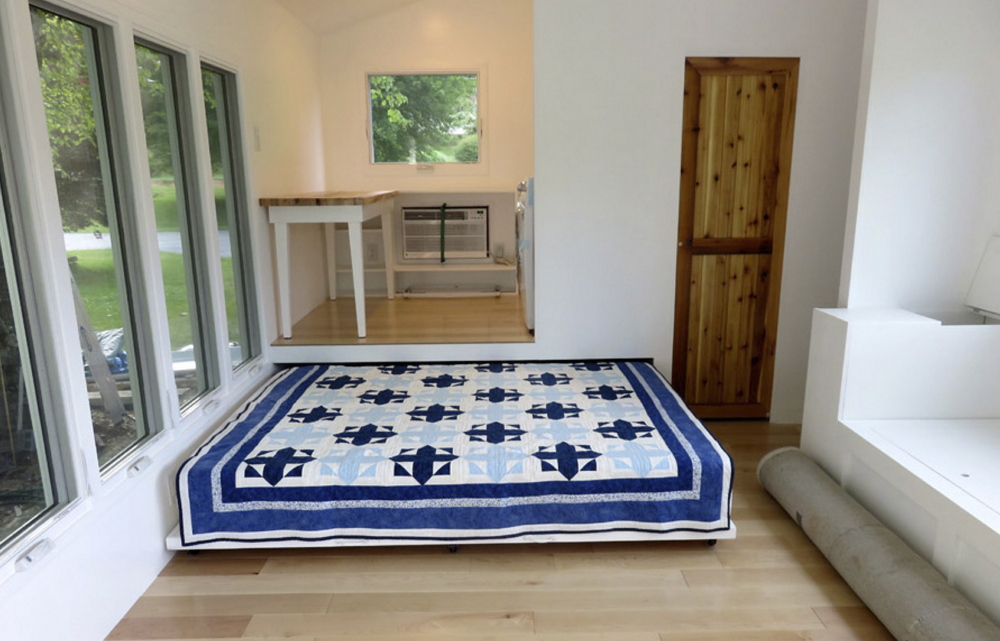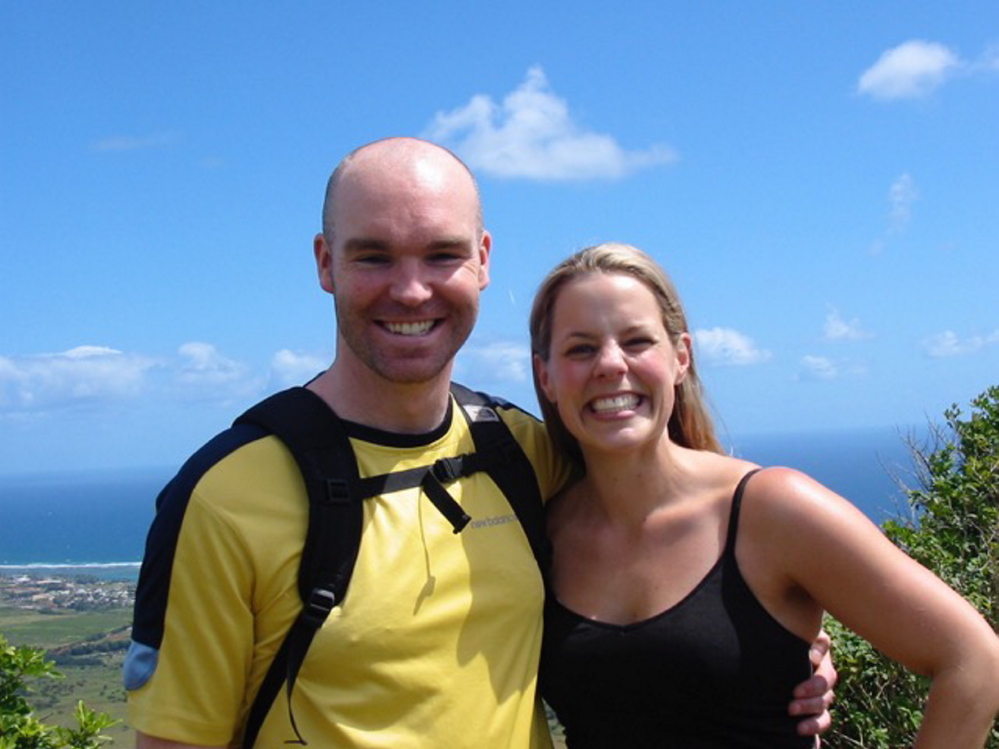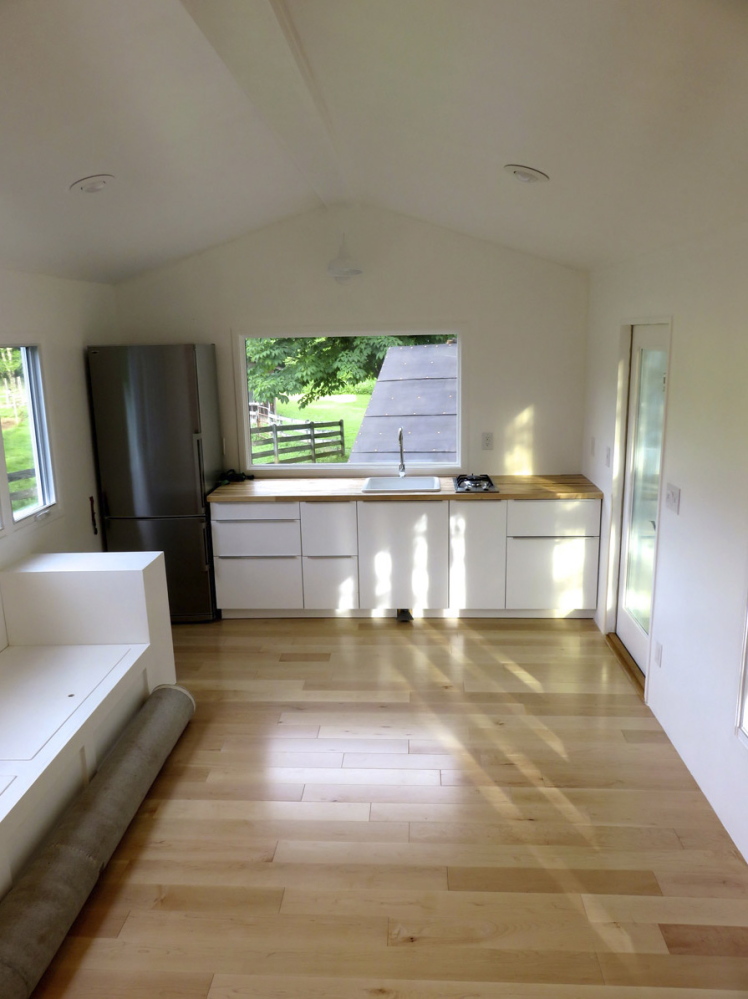Tommy and Dewey Reen have been downsizing since they moved out of the colonial house they bought in Cape Cod when they got married eight years ago.
They moved in and out of cottages and condos throughout the country, then finally built their dream home – a 288-square-foot, one-room house on wheels.
Now they just need a place to put it.
The owners of an over-the-phone life-coaching business, the couple in their 30s can live anywhere they can get a cell signal.
They’ve zeroed in on either South Portland or Cape Elizabeth, because they are near Dewey Reen’s family, or California.
Where they end up will depend on who is willing to host them.
“The universe will tell us where it wants us to be,” Tommy Reen said.
Since they decided to build a tiny house in January, the Reens have had ads on Craigslist seeking a property owner willing to let them park it on a piece of land, offering either rent or services, such as yard care, in return.
All they need is a 50-amp outlet, a water hose, room for their two rescue dogs to roam, and space to park their two Toyota Priuses, as well as a property owner willing to break the law.
The Reens’ quest represents a common hurdle facing the growing number of people building small, efficient homes, known as tiny houses.
Code regulations haven’t caught up with the movement, which has emerged in recent years as a way to save money, reduce environmental impact and live more simply.
“It’s still illegal. That’s the downside,” Tommy Reen said.
Because their house is on wheels, as most tiny houses are, it’s considered a recreational vehicle.
Only some RV parks allow tiny houses, and many aren’t open year-round or have limits on how long they can stay, said Elaine Walker, a founder of the American Tiny House Association. A more common option is to stay in a friend’s backyard, she said.
“It doesn’t always work out well when you don’t know someone,” Walker said. “You have to be very cautious.”
Either way, it would be considered camping, something most places, especially more populated ones, also have limits on, she said.
In Cape Elizabeth, RVs are prohibited as permanent dwelling units and can only be occupied for up to three nights in any 30-day period, according to a town ordinance.
South Portland allows property owners to host guests in RVs for up to 14 days at a time, said Pat Doucette, the city’s code enforcement officer. A tiny house could stay longer if it is placed on a foundation, Doucette said, but the lot would have to meet certain size and zoning requirements to allow a second dwelling unit, and she doesn’t know of any in South Portland that could accommodate one.
The regulation of tiny houses isn’t something that’s been on the radar screen of the Maine Municipal Association. But a similar trend – building houses on barges floating on Maine’s lakes – has started to emerge and raise questions about the fairness of avoiding property taxes, said MMA spokesman Eric Conrad.
Tommy Reen hasn’t researched all the local laws, but knows there are very few places where tiny houses are actually allowed.
“At the beginning of this, we’re going to be flying under the radar,” he said.
But wherever they end up, Reen said they’ll work with local officials to get codes changed to make their lifestyle legal.
“We’re doing it because we believe in it,” he said.
Reen said he’s gotten hundreds of emails in response to the Craigslist ads, simply offering support.
They have received several offers, too, although none of them has worked out so far. Some homeowners had driveways that were too narrow for getting the tiny house onto the property. Others offered sites that were more far-flung than what the Reens wanted.
Reen said they’re not choosing the tiny-house lifestyle to distance themselves from society, but to be more involved with their community by freeing themselves from the constraints of a mortgage, oil bills, general upkeep and the accumulation of belongings – all the things that make up what he calls “the American nightmare.”
The house, which hasn’t moved from where it was built in North Carolina, cost $60,000 to construct and furnish without skimping on quality.
“It’s the equivalent of a Manhattan studio,” Reen said, noting the hardwood floors and high-end finishes.
Through innovative design, everything they need is packed into the space, including a full-size bathroom with composting toilet. When it’s not being used, their queen-size bed slides under an office area on a platform. The armrests of the couch have built-in dog bowls.
Because they use biodegradable detergent and soap, the water that drains from the sinks and shower can be reused on gardens. For efficiency’s sake, the bathroom sink is operated by a foot pedal, and the entire house is “insulated to the nines,” Reen said.
As for how much winter heating with electricity will cost, Reen can’t be sure yet. Depending on where they land, they might not need it.
“Maybe we’ll end up in Santa Cruz, California, maybe we’ll end up in Cape Elizabeth,” he said.
That’s one of the benefits of owning a house on wheels – having the ability to be adventurous.
“We’re not fully in control,” Reen said. “That’s OK with us right now.”
Copy the Story Link
Send questions/comments to the editors.







Success. Please wait for the page to reload. If the page does not reload within 5 seconds, please refresh the page.
Enter your email and password to access comments.
Hi, to comment on stories you must . This profile is in addition to your subscription and website login.
Already have a commenting profile? .
Invalid username/password.
Please check your email to confirm and complete your registration.
Only subscribers are eligible to post comments. Please subscribe or login first for digital access. Here’s why.
Use the form below to reset your password. When you've submitted your account email, we will send an email with a reset code.